TTAC News Round-Up: China Brings Long-Dead German Automaker Back From the Grave

Although it would been cheaper to build elsewhere, the Chinese-resurrected Borgward has opted to return to its hometown of Bremen for its new factory. Not only is the Germany company back after a half-century absence, China is also giving it a proper homecoming.
That, time is running out for Ford as union strike date nears, Toyota invests in a future of needing fewer cars, and Alfa’s Giulia is changing shape… after the break!
China breathes new life into deceased German company
Borgward, a historic German automotive brand that met its demise in 1961, is being revived. Chinese truck manufacturer Beiqi Foton plans to open a factory in Germany and build 10,000 shiny and new Borgward badged cars annually. Construction of the factory begins next year.
Automotive News Europe writes:
The company, once Germany’s third-biggest automaker, is returning to its former home, the north German city of Bremen, where it plans to build its BX7 electric car from semi-knocked-down kits starting in 2018.
“Production will be designed to be flexible and organized in such a way that we can adjust — and thus increase — production output and the number of models,” Borgward CEO Ulrich Walker said in a statement.
Borgward said it was not just the “emotional argument” that has attracted it to its former home. It cited Bremen’s good logistics’ connection to the Bremerhaven port, the ready availability of skilled workers, and the region’s strong supplier industry as reasons for the decision.
The company already builds combustion-engined hybrid variants of the BX7 in Miyun, near Beijing. The German plant will be its first factory outside of China, and serves as a European base from which the automaker intends to begin production of the fully-electric BX7. Borgward only plans to sell electric and plug-in hybrid vehicles in Europe, targeting Germany as its primary market.
Ford and Unifor continue talks as strike deadline nears
Ford Motor Company and Canadian union Unifor are continuing negotiations as Monday’s strike deadline nears. Unifor president Jerry Dias told Automotive News that Ford’s leadership have voiced repeated concerns with the union in regard to the pattern established in contract talks with Fiat Chrysler Automobiles and General Motors.
“Since we ratified the deal with GM, they have been voicing their displeasure with the [wage] grid because they have more employees on the grid than the other two do,” Dias said.
The union president also said he knew that Ford would be the least agreeable of the three to make the sort of changes Unifor wanted before negotiations began. Ford offered no comment beyond its previous assurance that the company will continue to work with Unifor to “negotiate a globally competitive collective agreement.”
Dias said Ford has also yet to commit to any investments at its two Windsor, Ontario engine plants, which employ about 1,400 hourly workers and are seen by the union as being in desperate need of new product. Although he is confident an overall deal will be reached with Ford before the 11:59 p.m. Eastern deadline on Monday, he also admitted that the pace of negotiations is “brutally slow.”
Toyota invests in the future of fewer cars
Hoping to secure its place in the future automotive landscape, Toyota Motor Corp said it has invested in Getaround, a U.S. car-sharing company. Getaround is an online peer-to-peer car sharing service that allows drivers to rent cars from owners.
Reuters reports:
The world’s biggest-selling automaker confirmed in an email to Reuters that it has invested in the San Francisco-based start-up through its investment fund, Mirai Creation Investment Limited Partnership, but declined to offer further details.
Earlier on Friday, Japan’s Nikkei newspaper reported that Getaround was believed to have received around $10 million from the fund.
Many automakers have been partnering up with tech firms to head off future competition from self-driving cars and car sharing services that could threaten to reduce demand for car ownership. Toyota’s current investment echoes similar business decisions from General Motors and Volkswagen to pair with Lyft and Gett. In fact, the Japanese automaker already has a partnership with Uber.
Alfa’s Giulia gets a wagon variant to boost sales
According to Automotive News Europe, Alfa Romeo is going to produce a wagon version of its Giulia sedan in Europe to help sales of that model. Neither Alfa or FCA have officially confirmed the move, so we don’t know if the wagon will be limited to Europe or make its way to the United States.
On sale since May in Europe, and September in the United Kingdom, the Giulia was Europe’s fourth best-selling midsize premium car last month.
“The Giulia sedan is doing reasonably well but without a wagon it is not competing in the largest portion of the midsize premium segment,” said Felipe Munoz, an analyst at JATO Dynamics market researchers.
In Europe, wagons account for 42 percent of sales of premium midsize cars, compared to the sedan’s 33 percent.
As wagons aren’t typically in high-demand for North Americans and Alfa has had such terrible trouble rolling out the Giulia west of the Atlantic anyway, don’t expect to see a bunch of these parked at Costco next year. What you can expect to see is the the Stelvio, Alfa’s first SUV. It will debut next month at the Los Angeles auto show and will likely go on sale globally next spring if FCA can get its act together.
[Images: Borgward; Ford Motor Company; Toyota; FCA]

A staunch consumer advocate tracking industry trends and regulation. Before joining TTAC, Matt spent a decade working for marketing and research firms based in NYC. Clients included several of the world’s largest automakers, global tire brands, and aftermarket part suppliers. Dissatisfied with the corporate world and resentful of having to wear suits everyday, he pivoted to writing about cars. Since then, that man has become an ardent supporter of the right-to-repair movement, been interviewed on the auto industry by national radio broadcasts, driven more rental cars than anyone ever should, participated in amateur rallying events, and received the requisite minimum training as sanctioned by the SCCA. Handy with a wrench, Matt grew up surrounded by Detroit auto workers and managed to get a pizza delivery job before he was legally eligible. He later found himself driving box trucks through Manhattan, guaranteeing future sympathy for actual truckers. He continues to conduct research pertaining to the automotive sector as an independent contractor and has since moved back to his native Michigan, closer to where the cars are born. A contrarian, Matt claims to prefer understeer — stating that front and all-wheel drive vehicles cater best to his driving style.
More by Matt Posky
Latest Car Reviews
Read moreLatest Product Reviews
Read moreRecent Comments
- Jalop1991 Nissan is Readying a Slew of New Products to Boost Sales and ProfitabilitySo they're moving to lawn and garden equipment?
- Yuda I'd love to see what Hennessy does with this one GAWD
- Lorenzo I just noticed the 1954 Ford Customline V8 has the same exterior dimensions, but better legroom, shoulder room, hip room, a V8 engine, and a trunk lid. It sold, with Fordomatic, for $21,500, inflation adjusted.
- Lorenzo They won't be sold just in Beverly Hills - there's a Nieman-Marcus in nearly every big city. When they're finally junked, the transfer case will be first to be salvaged, since it'll be unused.
- Ltcmgm78 Just what we need to do: add more EVs that require a charging station! We own a Volt. We charge at home. We bought the Volt off-lease. We're retired and can do all our daily errands without burning any gasoline. For us this works, but we no longer have a work commute.




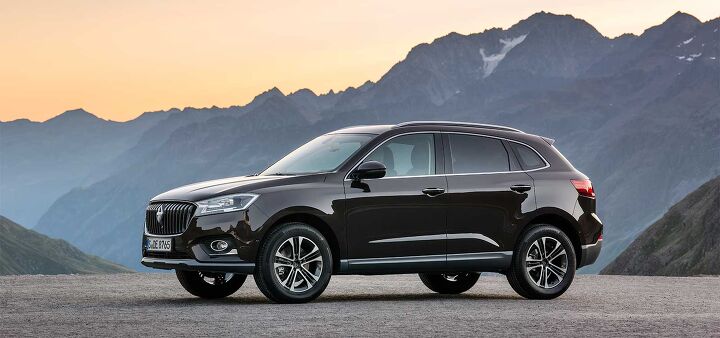

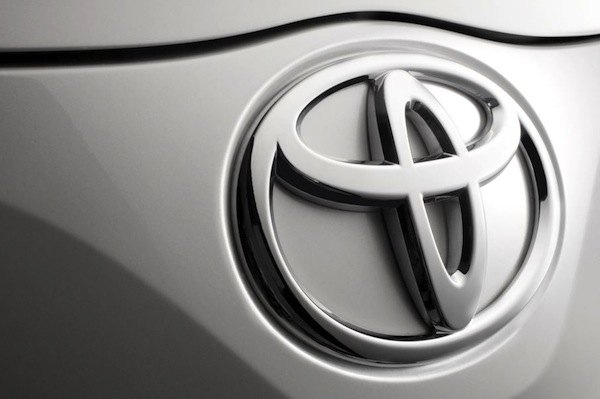
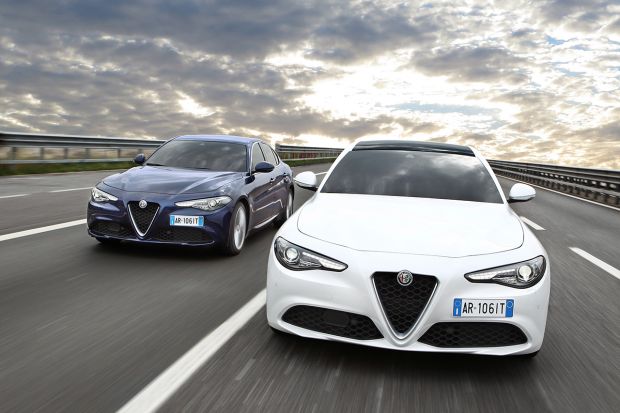


















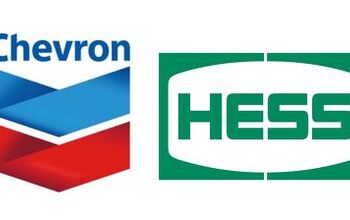



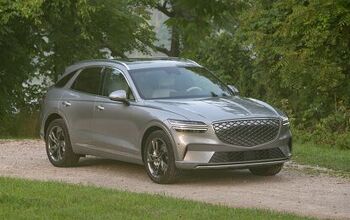


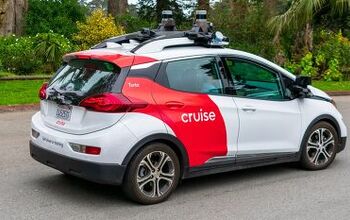




Comments
Join the conversation
> What you can expect to see is the the Stelvio, Alfa’s first SUV. Actually the Stelvio will be Alfa's second SUV. The first was the AR 52 "Matta" built in the 1950s, a more rustic four-wheeler along the lines of a Jeep Wrangler or Land Rover Defender.
Mazda grew out to be Asia's Alfa Romeo, where the Marchionne original failed to 'make its marque'. Alfa could have taken a head start by partnering with Mazda to come up with an Alfa spider on the basis of the MX-5. No one expected to see the Fiat 124 being revived. A Giulia sportswagon should have been launched together with the saloon version. Two big mistakes, next to the Alfa 4C.